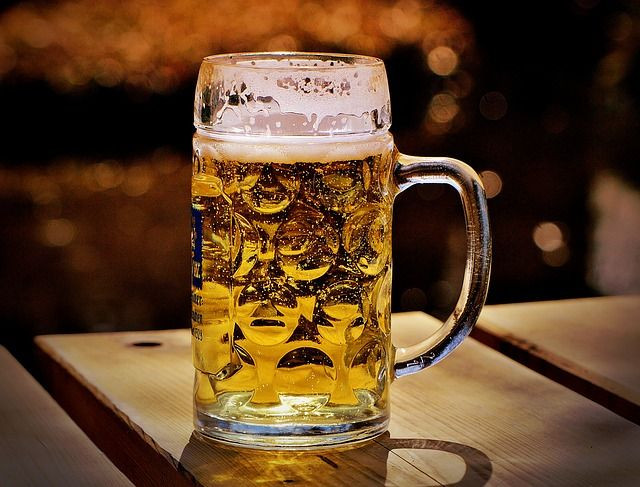Dangers Of Binge Drinking: Just 21 Instances Of Unhealthy Alcohol Use May Cause Early Signs Of Liver Damage

We all know that drinking too much alcohol is bad for you, but most of us think it takes years of serious alcohol abuse before damage occurs. A new study has suggested that just a few times of heavy binge drinking may be enough to cause noticeable harm to the liver.
The study, published online in Alcoholism: Clinical & Experimental Research, found that 21 binge drinking sessions in mice were enough to cause symptoms of early-stage liver disease. Mice that were given an alcohol equivalent of binge drinking sessions in humans produced fatty liver tissue and displayed early stages of inflammation. In addition, bingeing also increased the levels of alcohol-metabolizing enzymes, whose activity can produce oxidative damage and other forms of harm to the liver.
Read: Binge Drinking May Lead To Breathing Problems
"We sometimes think of alcoholic liver damage as occurring after years of heavy drinking. However, we found that even a short period of what in humans would be considered excessive drinking resulted in liver dysfunction," explained Dr. Frederic "Woody" Hopf, a researcher involved with the study, in a statement.
For their research, the team gave lab mice the alcohol equivalent to a human’s binge drinking session, defined as five or more drinks within two hours for a man, and four or more drinks in two hours for women. It only took seven weeks and 21 incidences of binge drinking before the effects of the alcohol abuse could be seen in the mice. Liver triglycerides were almost 50 percent higher, and triglyceride levels in the blood were almost 75 percent higher in binge drinkers' livers compared to mice that were not given alcohol; these are two signs of early liver damage. What’s more, fat droplets were clearly visible in liver slices from binge drinkers.
It seems as though there is a threshold for just how much alcohol the liver can handle in a short period of time. For example, the study revealed moderate-drinking mice and mice that had just one binge drinking session did not have significantly elevated triglyceride levels compared to abstainers.
These results back what doctors have been telling us for years: Binge drinking is dangerous. According to the University of Rochester, binge drinking also increases the risk of accidental injuries such as car crashes, falls, burns, and drowning. In addition, binge drinkers have increased risk of killing someone; committing suicide; engaging in child abuse or domestic violence; high blood pressure; heart attack; inflammation of the stomach, pancreas, brain, or spinal cord; sexually transmitted infections; and poor control of diabetes.
According to the University of Rochester, binge drinking can also put you at risk for alcohol abuse disorder, a mental and physical health condition where individuals find themselves unable to control their drinking; as a result, they may face many work and relationship problems.
Source: Wegner SA, Pollard KA, Kharzaia V, et al. Limited Excessive Voluntary Alcohol Drinking Leads to Liver Dysfunction in Mice. Alcoholism:Clinical & Experimental Research. 2017
See Also:
For Young Adults, Binge Drinking And High Blood Pressure May Go Hand In Hand
70%Of Weekend ER Admissions In England Are Alcohol Related, US Isn’t Any Better
Published by Medicaldaily.com



























